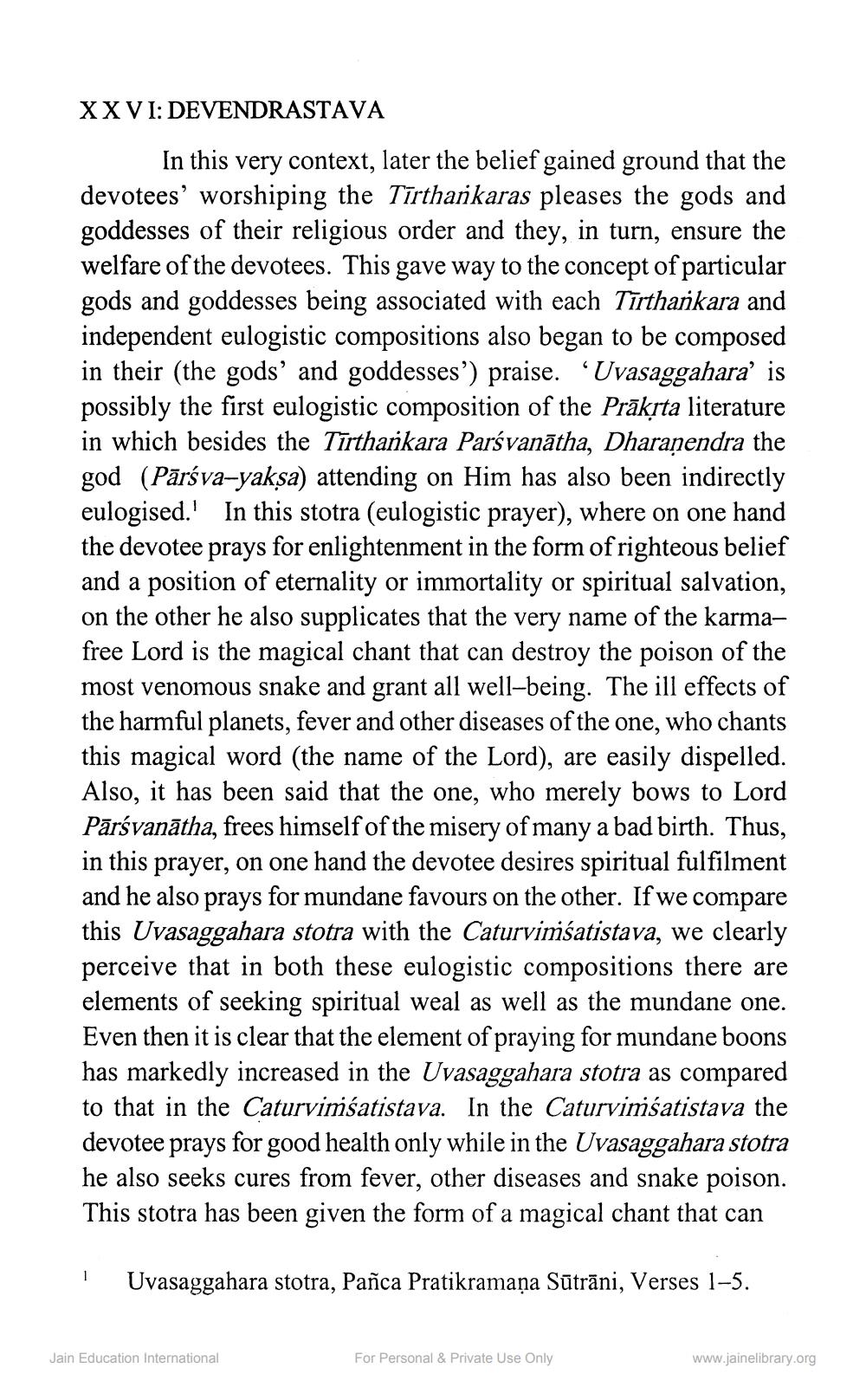________________
XXVI: DEVENDRASTAVA
In this very context, later the belief gained ground that the devotees' worshiping the Tīrtharkaras pleases the gods and goddesses of their religious order and they, in turn, ensure the welfare of the devotees. This gave way to the concept of particular gods and goddesses being associated with each Tīrtharkara and independent eulogistic compositions also began to be composed in their (the gods' and goddesses') praise. 'Uvasaggahara' is possibly the first eulogistic composition of the Prāksta literature in which besides the Tīrthařkara Parávanātha, Dharanendra the god (Pārśva-yakşa) attending on Him has also been indirectly eulogised. In this stotra (eulogistic prayer), where on one hand the devotee prays for enlightenment in the form of righteous belief and a position of eternality or immortality or spiritual salvation, on the other he also supplicates that the very name of the karmafree Lord is the magical chant that can destroy the poison of the most venomous snake and grant all well-being. The ill effects of the harmful planets, fever and other diseases of the one, who chants this magical word (the name of the Lord), are easily dispelled. Also, it has been said that the one, who merely bows to Lord Pārsvanātha, frees himself of the misery of many a bad birth. Thus, in this prayer, on one hand the devotee desires spiritual fulfilment and he also prays for mundane favours on the other. If we compare this Uvasaggahara stotra with the Caturvimśatistava, we clearly perceive that in both these eulogistic compositions there are elements of seeking spiritual weal as well as the mundane one. Even then it is clear that the element of praying for mundane boons has markedly increased in the Uvasaggahara stotra as compared to that in the Caturvimśatistava. In the Caturvimśatistava the devotee prays for good health only while in the Uvasaggahara stotra he also seeks cures from fever, other diseases and snake poison. This stotra has been given the form of a magical chant that can
I
Uvasaggahara stotra, Pañca Pratikramaņa Sūtrāni, Verses 1-5.
Jain Education International
For Personal & Private Use Only
www.jainelibrary.org




